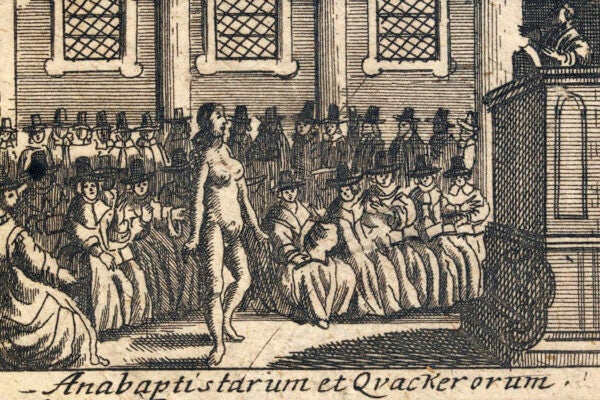Do All Dogs Go to Heaven?
The belief that animals cross the “Rainbow Bridge” to an afterlife is relatively new and not part of any formal theology, yet many Americans embrace it.
The Naked Quakers
Today, the international feminist group FEMEN uses nudity as part of its protests. But appearing naked in public was also a tactic used by early dissenters.
Monastic Chant: Praising God Out Loud
For medieval monks, chant was often a crucial part of worship, but theologians had different ideas about how the words and sounds helped evoke piety.
The Deep Roots of Mughal Tolerance
Under Akbar, the Mughal Empire instituted a policy known as sulh-i kull, which called for amicable reconciliation and tolerance toward all religions.
The Diverse Shamanisms of South America
In Brazil, Indigenous people and city-dwellers of all backgrounds mix various shamanic practices, including rituals imported from North America and elsewhere.
Seeing the World Through Missionaries’ Eyes
One way Americans got a look into life in distant parts of the world in the 1930s and ’40s was through films made by Protestant missionary groups.
Nice Guy Spinoza Finishes…First?
The Dutch Jewish philosopher Spinoza died in 1677, which is when the battle to define his life—and work—began.
Bundling: An Old Tradition on New Ground
Common in colonial New England, bundling allowed a suitor to spend a night in bed with his sweetheart—while her parents slept in the next room.
Mark Twain’s Obsession with Joan of Arc
Despite being famous for his witty analyses of the American South, Twain was proudest of the historical fiction he wrote about France’s legendary martyr.
Jain Ascetics in a Material World
The Jain Śvētāmbara Terāpanth sect began as an ascetic discipline, but it has increasingly emphasized physical health over renunciation of the body.









